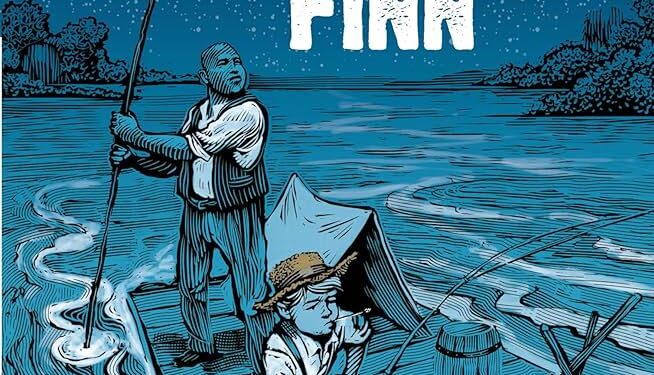How does Mark Twain satirize society in The Adventures of Huckleberry Finn
How does Mark Twain satirize society in The Adventures of Huckleberry Finn-What does Mark Twain satirize in Huckleberry Finn?, How did The Adventures of Huckleberry Finn affect society?, How does Huck Finn conform to society?,In The Adventures of Huckleberry Finn, Mark Twain presents a searing social critique through sharp satire, highlighting the flaws and contradictions of antebellum American society. Through the escapades of Huck Finn and his companion Jim, a runaway slave, Twain unveils the injustices and hypocrisies deeply rooted in the societal fabric. Employing a palette of satirical tools like irony, exaggeration, and parody, Twain illuminates the dark underbelly of a society built on racism, slavery, and moral duplicity.How does Mark Twain satirize society in The Adventures of Huckleberry Finn
Central to Twain’s satire is the skewering of slavery, revealing its dehumanizing impact on both slaves and slave owners. Through Jim, Twain challenges prevalent stereotypes of African Americans, portraying him as a dignified and compassionate individual deserving of freedom. By contrasting Jim’s humanity with the callousness of characters like Miss Watson and Pap Finn, Twain lays bare the moral bankruptcy inherent in a society that treats human beings as property.
Also Read-
- Analyze the symbolism of the scarlet letter in Nathaniel Hawthorne’s novel
- How does Edgar Allan Poe use the theme of madness in his works
- Discuss the influence of transcendentalism on American literature
Twain also takes aim at the hypocrisy and moral bankruptcy of Southern society through Huck’s encounters with various characters. Huck navigates a world governed by rigid social conventions and moral double standards, where civility often veils underlying cruelty and corruption. Twain exposes societal norms’ absurdity through characters like the feuding Grangerfords and Shepherdsons, who preach virtue while engaging in senseless violence. Similarly, Twain ridicules the superficial piety of characters like the Widow Douglas and Miss Watson, who espouse Christian values while condoning slavery and perpetuating racial stereotypes. Huck’s experiences underscore the moral decay of a society prioritizing conformity over compassion and tradition over individual conscience.How does Mark Twain satirize society in The Adventures of Huckleberry Finn
Furthermore, Twain uses satire to critique the townspeople’s gullibility and moral cowardice, particularly in the lynching of the innocent Sherburn. He reveals the dangers of mob mentality and the erosion of individual autonomy in the face of collective hysteria. Twain underscores how easily individuals forsake their principles for social acceptance, highlighting the fragility of moral integrity in a society driven by fear and prejudice.
In addition to his critique of Southern society, Twain satirizes the romanticized notion of the noble savage and Northern hypocrisy towards African Americans. Characters like the King and the Duke epitomize opportunism and moral bankruptcy as they exploit racial tensions for personal gain. Twain also lampoons Northern abolitionists like the Phelps family, who claim sympathy for slaves while perpetuating racial stereotypes and treating Jim as a mere commodity. Through these characters, Twain exposes the hypocrisy and moral ambiguity ingrained in a society professing freedom and equality while perpetuating racial injustice and exploitation.
Conclusion
In The Adventures of Huckleberry Finn, Mark Twain’s skillful use of satire illuminates the societal flaws and contradictions of antebellum America. Through the journey of Huck Finn and his companion Jim, Twain exposes the injustices of slavery, the hypocrisy of societal norms, and the moral bankruptcy prevalent in both Southern and Northern communities.How does Mark Twain satirize society in The Adventures of Huckleberry Finn
Employing a range of satirical techniques, Twain invites readers to confront the harsh realities of racism, mob mentality, and societal conformity. Through Huck’s experiences, Twain delivers a powerful social critique, leaving readers with a profound reflection on humanity’s capacity for cruelty and injustice.
FAQs:
1. How does Mark Twain use satire in The Adventures of Huckleberry Finn?
Mark Twain employs satire in The Adventures of Huckleberry Finn through irony, exaggeration, and parody to critique societal norms, hypocrisy, and injustice. Through the characters and their experiences, Twain exposes the flaws and contradictions of antebellum American society.
2. What societal issues does Twain address in the novel?
Twain addresses a range of societal issues in the novel, including slavery, racism, hypocrisy, moral bankruptcy, and mob mentality. Through the adventures of Huck Finn and Jim, Twain offers a scathing critique of the injustices and hypocrisies prevalent in antebellum America.
3. How does Twain portray the character of Jim?
Twain portrays Jim as a dignified and compassionate individual, challenging prevailing stereotypes of African Americans as inferior and subservient. Through Jim’s experiences, Twain exposes the dehumanizing impact of slavery and highlights the inherent injustice of treating human beings as property.
4. What is the significance of Huck Finn’s journey in the novel?
Huck Finn’s journey serves as a vehicle for Twain to critique societal norms and moral hypocrisy. Through Huck’s encounters with various characters and situations, Twain exposes the absurdity and moral decay of a society governed by racism, slavery, and conformity.
5. What lasting impact does The Adventures of Huckleberry Finn have on literature?
The Adventures of Huckleberry Finn remains a seminal work of American literature, celebrated for its incisive social critique and enduring relevance. Twain’s skillful use of satire continues to resonate with readers, prompting reflection on issues of race, morality, and societal injustice.













